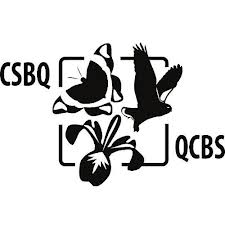Chloé L'Ecuyer-Sauvageau

Université du Québec en Outaouais
Ph.D. candidate
Supervisor: Jérôme Dupras
Start: 2018-05-23
End: 2022-04-01
Ph.D. candidate
Supervisor: Jérôme Dupras
Start: 2018-05-23
End: 2022-04-01
Project
Analyse de l’offre et de la demande de services écosystémiques liés à l’eau en milieu agricole au Québec : la gestion du phosphoreEutrophication is caused by the excessive enrichment of waterbodies by nutrients, largely accelerated by human activities (agriculture, industrial effluents, wastewater …). This phenomenon causes a number of ecological changes that have economic and health consequences. Algal blooms, especially, are exacerbated by the presence of nutrients in waterbodies, and largely by the presence of phosphorus. Taking into account the perspective of every user in a watershed, the concept of ecosystem services (ES) can be useful to understand the benefits associated with a healthy environment, but also to understand the sometimes-conflicting preferences of these users. In this thesis, our aim is to understand the social-ecological dynamics and the preferences of recreational users and of agricultural producers within a watershed, in a context of the management of non-point source phosphorus, where the objective is to improve water quality and maximize the production of ES. To achieve this, we relied on four approaches: a literature review and analysis, the economic valuation of ES using a spatial approach, an analysis of preferences using the choice experiment method, and an agent-based model. First, with the literature review and analysis, we were able to establish the setting within which phosphorus management policies are designed, in the context of the ecological transition in the province of Quebec. Second, the economic valuation of ES with a spatial analysis enabled us to determine the ES provided by ecosystems in the area managed by the National Capital Commission in Gatineau-Ottawa. To do this evaluation, we mainly relied on the benefit transfer method, but also on market pricing methods. This exercise was useful to estimate the benefits associated with ES provided by agricultural lands. Using this method, we were also able reflect on the use, by decision-makers, of the values of ES. Third, the choice experiment method was used to gather more information about the preferences of recreational water users and agricultural producers with regard to ES in a watershed. We measured the willingness to pay of recreational water users to improve water quality for a suite of ES (recreational activities, ecological health, ES related to aesthetics). The results showed that recreational water users are interested in contributing to a fund to improve the quality of ES. With the agricultural producers, we used the method to determine their level of interest for a payment for ES (PES) and to understand their preferences for such a program’s contract features. The agricultural producers did show an interest for a PES. With regard to contractual features, they preferred less restrictive and better-known practices (soil conservation measures, cover crops), shorter contract duration, and higher compensation levels. Our results also showed that the mode of compensation offered to farmers (% of costs or $/ha) did influence the preferences of farmers for contractual features. Finally, the development of an agent-based model was used to describe how agricultural producers may decide to take part in a PES and adopt agri-environmental practices. This exercise also allowed us to explore how the use of some decision-making models influence decisions of farmers with regard to a PES. We showed that the economic rationality model does not represent agricultural producer’s decision-making process very well. To conclude, the use of the social-ecological system framework allowed us to analyse how a PES might fit in this system, given the political context, the governance system and the expectations of recreational water users towards water quality in Quebec.
Keywords
services écosystémiques, Gestion de l'eau, Paiements pour services écosystémiques, Modélisation multi-agents , modélisation de choix, agriculturePublications
1- Understanding the preferences of water users in a context of cyanobacterial blooms in QuebecL'Ecuyer-Sauvageau, Chloé, Charlène Kermagoret, Jérôme Dupras, Jie He, Justin Leroux, Marie-Pier Schinck, Thomas G. Poder
2019 Journal of Environmental Management
2- The economic value of Canada’s National Capital Green Network
Chloé L'Ecuyer-Sauvageau, Jérôme Dupras, Jie He, Jeoffrey Auclair, Charlène Kermagoret, Thomas G. Poder
2021 PLOS ONE

